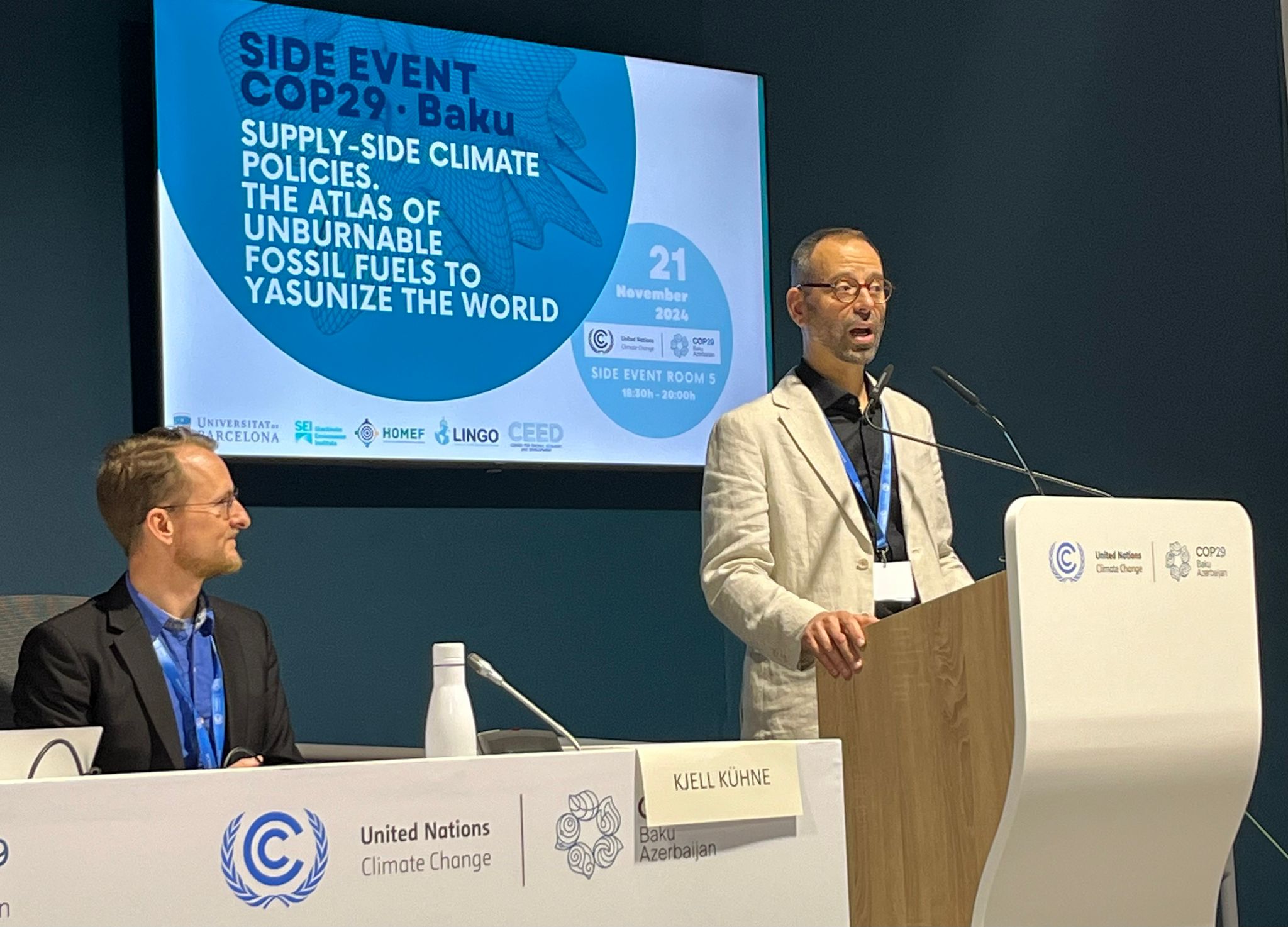27-11-2024
Climate crisis and conflicts in Baku: a summit marked by distrust
On the first day of COP29, the World Meteorological Organization (WMO) presented the State of the Climate 2024 report, which warns that this year will likely be the warmest on record, with a global average temperature of 1.54ºC above pre-industrial levels. It also highlights the worrying retreat of glaciers and the accumulation of heat in the oceans, equivalent to 18 times global energy consumption.
The Secretary-General of the WMO, Celeste Saulo, insisted that these data do not mean that the Paris objectives have been failed, but stressed that they are a "red alert" for the planet.
Disappointment and controversy at COP29 in Baku
Azerbaijan, the host country of COP29, has been at the center of several controversies during the summit, which ended after 35 hours of extension. Despite reaching an agreement to mobilise $1.3 trillion a year in climate finance by 2035, the outcome has been widely criticised for its lack of concrete commitments in the form of grants and low-interest loans. Only $300 billion will be direct contributions, a figure that some countries have described as “betrayal”.
The Azerbaijani government has been accused of hypocrisy for positioning itself as a global peacemaker while facing allegations of human rights repression and ethnic cleansing. In addition, an investigation by Global Witness has revealed the use of fake social media accounts to amplify the government’s official message and silence independent criticism.
A side-event to "Yasunize" the world
On November 21, the UB Extractive Industries, Planetary Health, and Environmental Justice group led the side-event highlighted at COP29 entitled "Supply-side climate policies: The Atlas of Unburnable Fossil Fuels to Yasunize the world". This team, formed by Dr. Martí Orta, Guillem Rius, Dr. Alejandro Marcos Valls and Dr. Gorka Muñoa, addressed policies to reduce fossil fuel extraction and promote the global transition to clean energies, inspired by the historic case of Yasuní, in Ecuador.
During the side event, together with other experts from the Stockholm Environmental Institute and civil society entities, different socio-environmental, economic and equity criteria were presented, in order to prioritize the reserves that should remain intact underground.
Dr. Martí Orta warned that in order not to exceed the 1.5ºC of global warming set by the Paris Agreement, not only must we stop exploring new fossil fuel reserves or developing the infrastructure of those known but not currently being extracted, but it would be necessary to prematurely cancel almost 90% of the current extraction concessions.
Unfortunately, he continues, the negotiations have not had the results we would like in terms of mitigation policies and reminds us that urgent decisions must be made to stop using fossil fuels and invest massively in clean energy.
Milestones and pending challenges
Among the few notable advances in Baku, is the agreement on Article 6 of the Paris Agreement's carbon markets, completing this framework almost a decade after its signature. However, key issues such as the global transition away from fossil fuels have been postponed until COP30, to be held in Brazil next year. Re-elected Donald Trump has added tension to the summit, promising to withdraw the United States from the Paris Agreement.
Against a backdrop of political wrangling, mistrust and insufficient financial commitments, COP29 feels like a missed opportunity to advance effective and equitable climate action. Meanwhile, scientists insist that the world cannot wait any longer to act if it is to limit global warming to 1.5°C.
Sources:
The Guardian:
Carbon Brief:
